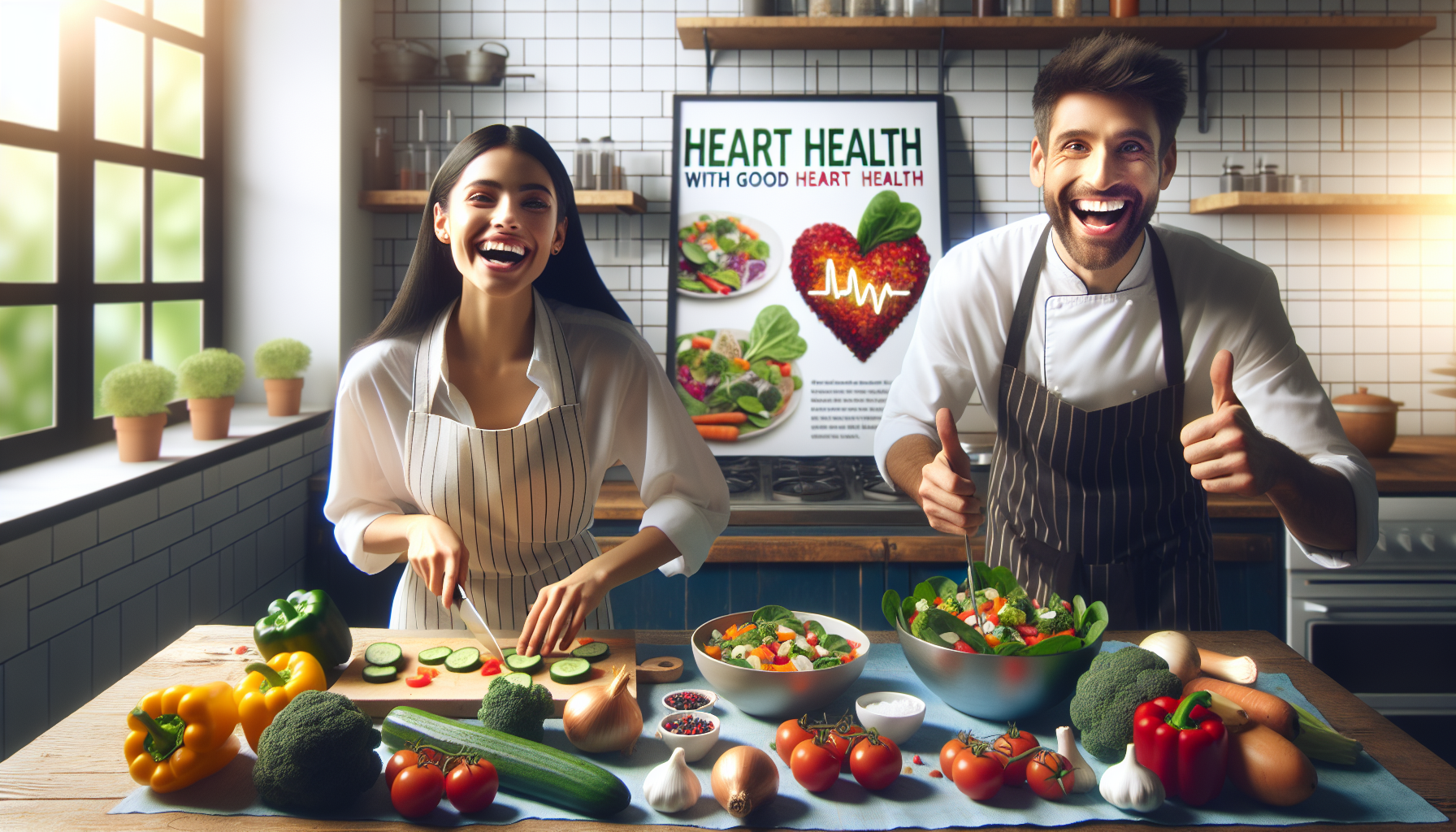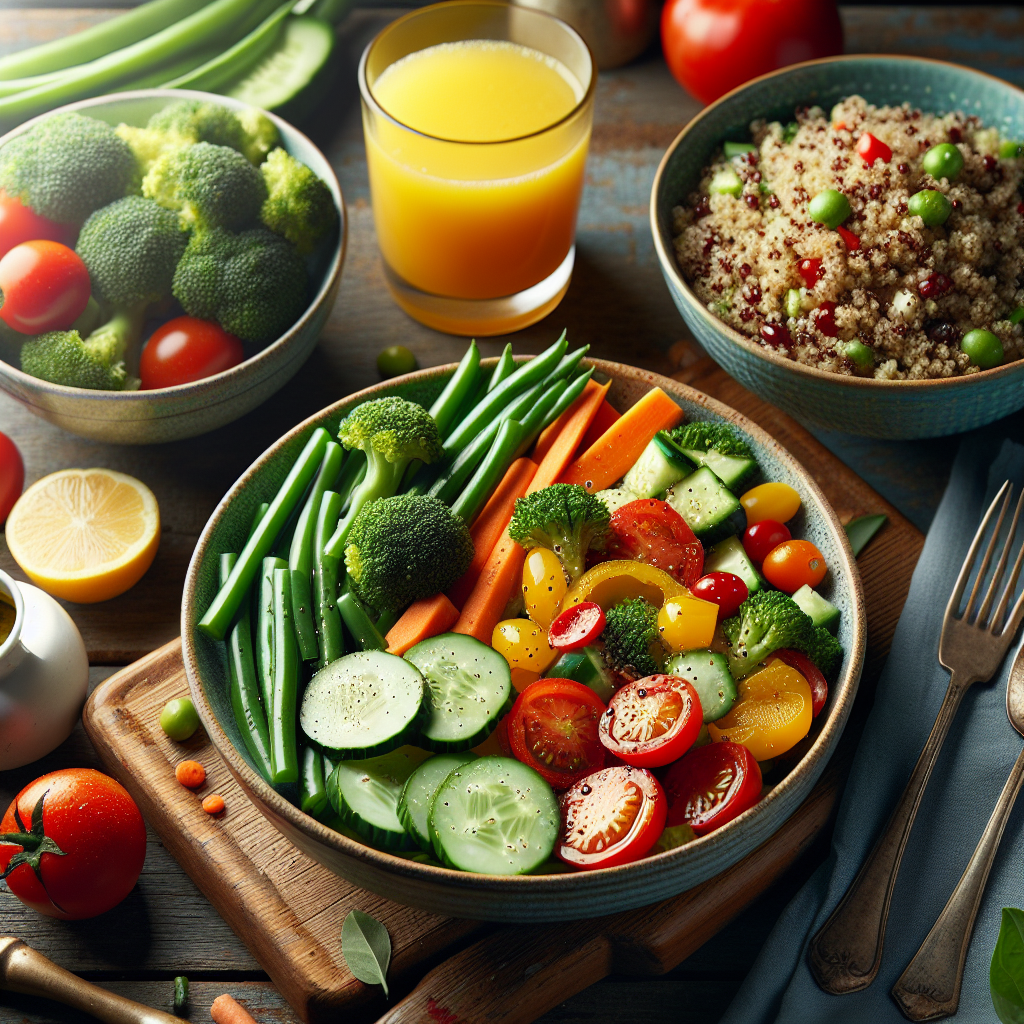When it comes to heart health, diet plays a pivotal role. Vegetarians and vegans often choose their diets for health benefits, ethical reasons, or both. However, while a plant-based diet can offer numerous health advantages, there are specific challenges and considerations that vegetarians and vegans should be mindful of to ensure their heart health remains a top priority.
The Heart of the Matter: Nutritional Considerations
A plant-based diet is typically rich in fruits, vegetables, whole grains, nuts, and legumes, which are known for their beneficial effects on cardiovascular health. These food groups provide essential nutrients, fiber, and antioxidants that help manage blood pressure, cholesterol levels, and inflammation—all of which are crucial factors in maintaining a healthy heart.
However, vegetarians and vegans may face challenges in obtaining certain nutrients that are commonly found in animal products. These nutrients include vitamin B12, iron, calcium, vitamin D, omega-3 fatty acids, and protein. Deficiencies in these areas can potentially impact heart health adversely. Therefore, it’s important to seek out plant-based sources or supplements for these essential nutrients.
For comprehensive support on cardiovascular health, explore Avix Health’s dedicated section on Cardiovascular Health.
Strategies for a Heart-Healthy Plant-Based Diet
Protein Power
While animal proteins are complete, meaning they contain all essential amino acids, many plant proteins are not. Vegetarians and vegans can still achieve a complete amino acid profile by combining different plant-based protein sources, such as rice and beans, or by consuming complete proteins like quinoa and chia seeds. For more on managing protein intake, the article on Managing Lipid Levels Through Diet and Lifestyle offers valuable insights.
Omega-3 Fatty Acids
Omega-3 fatty acids are vital for heart health, particularly EPA and DHA, which are primarily found in fish. Plant-based sources of omega-3s, such as flaxseeds, chia seeds, and walnuts, contain ALA, which the body can convert to EPA and DHA, albeit inefficiently. Algae-based omega-3 supplements can be a direct source of EPA and DHA for those on a plant-based diet.
Keeping Up with Vitamin B12
Vitamin B12 is crucial for blood formation and the functioning of the brain and nervous system. Since it is not naturally present in plant foods, vegetarians and vegans should consider fortified foods or supplements. The importance of vitamin supplementation is further discussed in the article on Role of Vitamin D in Cardiovascular Disease Prevention.
Ironclad Intake
Plant-based iron, known as non-heme iron, is less readily absorbed by the body than the heme iron found in animal products. To enhance iron absorption, vegetarians and vegans should consume vitamin C-rich foods alongside iron-rich plant foods. Cooking with cast iron pots and avoiding tea or coffee with meals can also help.
Sufficient Calcium and Vitamin D
Calcium and vitamin D are essential for bone health, but they also play a role in cardiovascular health. Plant-based calcium can be found in fortified plant milks, tofu, and leafy greens, while vitamin D can be synthesized through sun exposure or taken as a supplement.
The Balancing Act: Lifestyle and Dietary Synergy
Diet is just one piece of the heart health puzzle. A balanced lifestyle that includes regular physical activity, stress management, and avoiding tobacco and excessive alcohol is also essential. Refer to the resource on Combating Sedentary Lifestyle for Heart Health for tips on incorporating more activity into your daily routine.
The Role of Fiber and Antioxidants
A plant-based diet is naturally high in fiber, which is beneficial for heart health. Fiber helps to reduce cholesterol levels and maintain a healthy digestive system. Antioxidants, found abundantly in fruits and vegetables, combat oxidative stress, which is linked to heart disease.
The Link Between Plant-based Diets and Lower Heart Disease Risk
Studies have shown that vegetarians and vegans have a lower risk of heart disease compared to non-vegetarians. The key is to ensure the diet is well-planned and nutritionally adequate, avoiding processed foods that can be high in salt, sugar, and unhealthy fats.
External Resources for Further Reading
For more specific information on plant-based diets and heart health, the following resources can be valuable:
- Explore the American Heart Association’s guidelines for a heart-healthy diet, which includes considerations for vegetarians and vegans.
- Delve into the research on plant-based diets and cardiovascular health as outlined in a comprehensive study from the National Institutes of Health.
- Understand the impact of various types of dietary fats on heart health with an in-depth analysis by the Harvard T.H. Chan School of Public Health.
Conclusion
Adopting a vegetarian or vegan diet can be a heart-healthy choice, but it requires careful planning and consideration of nutrient intake. By focusing on a diverse range of plant-based foods and incorporating the necessary supplements or fortified foods, vegetarians and vegans can enjoy the cardiovascular benefits of their dietary choices while meeting all their nutritional needs.
Remember, heart health is not solely determined by diet—it’s a holistic approach that includes lifestyle choices, regular check-ups, and being informed about your own health. Regular dental check-ups, for example, are also linked to cardiovascular health, as discussed in the article on Cardiovascular Health and the Importance of Regular Dental Check-Ups.
By equipping yourself with the knowledge and resources available, you can navigate the challenges and reap the rewards of a heart-healthy vegetarian or vegan lifestyle.



